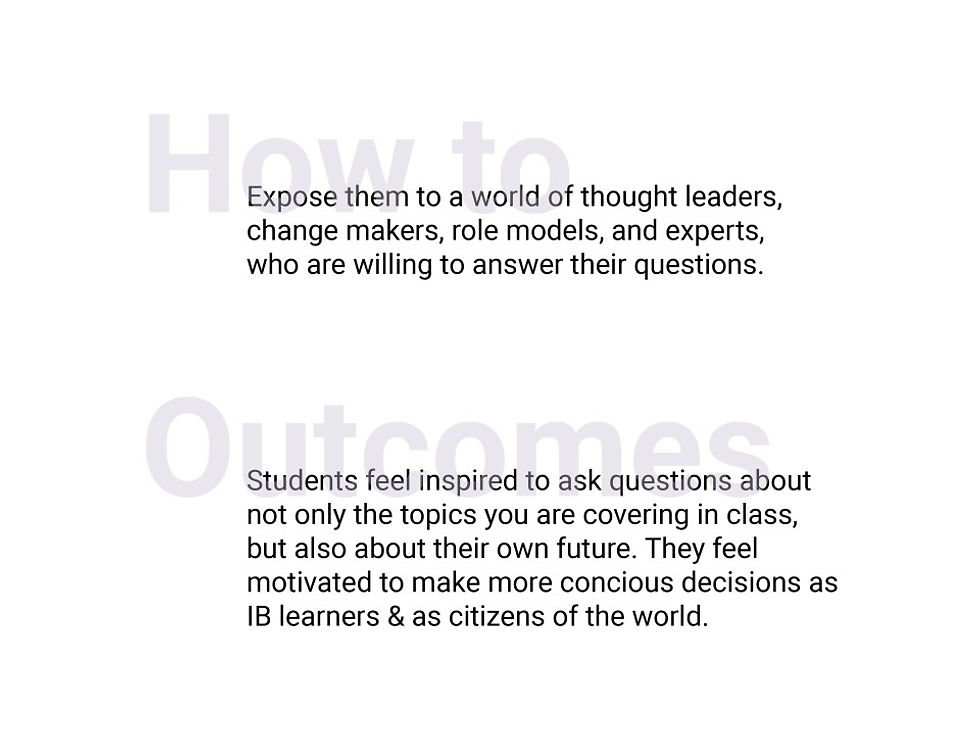This post is part of a 4-part series highlighting how teachers can put the IB Learner Profile into practice and expand their students’ consciousness.
As an IB teacher, you already know the unique challenges of teaching the pillars of the International Baccalaureate Learner Profile in your students. Educating a new generation of citizens of the world means rethinking the process of value, attitude, and behavioral acquisition (Wells, 2011), and this is no small feat. With this in mind, how can you “develop internationally minded people who, recognizing their common humanity and shared guardianship of the planet, help to create a better and more peaceful world?” In other words, how can you, as a teacher, cultivate more conscious students?
In the first installment of our series, we will discuss how inquiry supports consciousness.
We believe that consciousness starts with a question. This question can be as simple as “Why is the sky blue?” or as advanced as “What are electromagnetic waves?”. Questions spark discussion, but more than this, they are the root of all progress in this world. No great discovery has come without some curiosity. Successful scientists, for example, know from the earliest stages of their studies that phrasing the right question sets the entire course of research, the hypotheses, and the expected outcomes of a research project.
Albert Einstein himself claimed:“I have no special talents, I am just passionately curious.”
This sentiment holds true across disciplines and careers.
In fact, “inquirers” top the list of qualities to develop in the IB learner profile, preparing students for school and for a lifelong journey toward knowledge by becoming the kind of individuals who aren’t afraid to ask. Questioning inspires students to take ownership in their learning journeys, and empowers them to be proactive, rather than reactive learners.
Students who embody inquiry in the IB program:
“…develop their natural curiosity.”
“…acquire the skills necessary to conduct inquiry and research and show independence in learning.”
“…actively enjoy learning and this love of learning will be sustained throughout their lives.” (IB Learner Profile)
Here are 3 easy-to-practice tips to help students develop the lifelong skill of inquiry:
3) Begin with the philosophy that there are no stupid questions, and foster natural curiosity.
As children, our minds are filled with questions, and we ask them freely. “What is the shape of a star?” my niece asked me recently. Imagine asking this question as an adult. For any number of reasons – peer pressure, shyness, introversion, confusion, etc. – traditional schooling can often create an environment for less confident or outwardly reflective students that makes it intimidating to maintain and mature their childlike curiosity in front of their peers. So, no matter their age, let them question everything and remember that a growth mindset applies to the whole child. Indeed, even those unfiltered questions students are prone to ask can become the basis for investigation with the guidance of a willing teacher. (Chin, 2006).
Teacher Tip:

2) Teach them to craft more meaningful questions, and the importance of asking those that transform their own thinking.
With or without an answer, learning how to set a question is a worthwhile experience. Once we approach the concept of the question as a work in progress, we allow students to experience the opportunity to develop exactly how to pose their own questions. In fact, pedagogies that immerse students “in a learning environment that values questions” makes all the difference in their ability to ask “good quality questions” (Chin, 2006). Students must be given the chance to understand how to ask provocative and rich questions about wonders in their mind. This process stretches the limits of their skills. Eventually, with teachers that are willing to work toward this goal, students become capable of asking “transformation questions” that involve “re-structuring or re-organization” of their understanding (Chin, 2006). By definition, this is the goal of education.
Teacher Tip:
Resources: Purpose of a Question & A Guide to Questioning

Source: TeachThought
1) Expose them to the people that make them want to keep asking more.
In a world of 7.44 billion people, what if you could connect your students with the brightest minds and thought leaders that move our world forward, to answer their most profound questions? A circle of influence of those that are willing to hear students’ musings, and offer useful insight can help students make both academic and professional decisions that are less random and more thoughtful.
Teacher Tip:

Imagine, after all, that you could change the rules for education and reward your students not for memorizing the answers, but for the questions they set. We’d be setting up this next generation to be more thoughtful and reflective in their own lives, and certainly more proactive toward solving the problems facing our joint future.
What would your students’ first question be?

In the next installment of this series, we will cover how open-mindedness impacts a student’s learning journey, as they learn to hear answers to their questions.
Today more than 22,000 students in 120 international & private/state schools across 33 countries use 100mentors to engage their students into designing their own learning journeys in and out of the classroom through our interactive web platform and new mobile application.
Our world is: A physics class in South Korea with a NASA engineer; an environmental assignment group in Brazil with a Harvard/MIT, Marie Curie fellow in marine biology, about the Amazon’s natural “gifts;” literature experts like Barry Cotton and Michael Dobson leading classes on “The Great Gatsby” and the “Twelfth Night,” to 11th graders in Vietnam and Moscow, respectively. Your students, asking the questions that inspire them, and getting answers from mentors across the world.
–
Chin, C., & Osborne, J. (2008). Students’ questions: A potential resource for teaching and learning science. Studies in Science Education, 44(1), 1–39. https://doi.org/10.1080/03057260701828101
Wells, J. (2011). International education, values and attitudes: A critical analysis of the International Baccalaureate (IB) Learner Profile. Journal of Research in International Education, 10(2), 174–188. https://doi.org/10.1177/1475240911407808


Comments